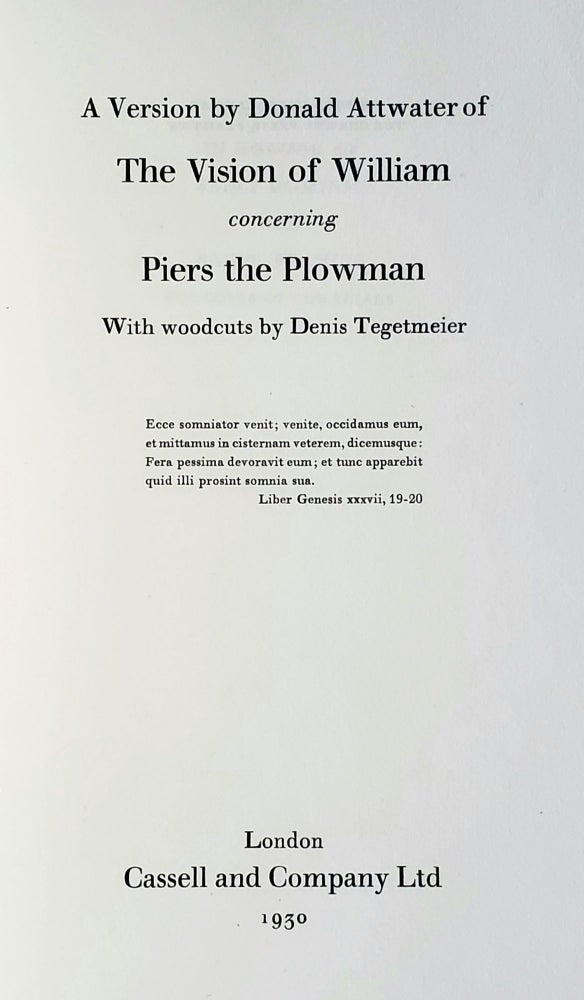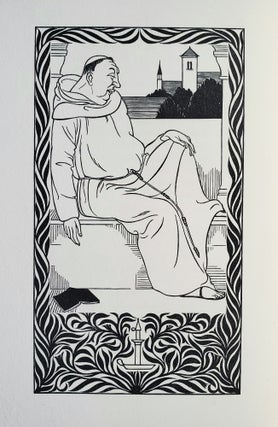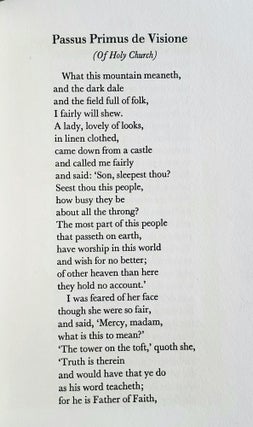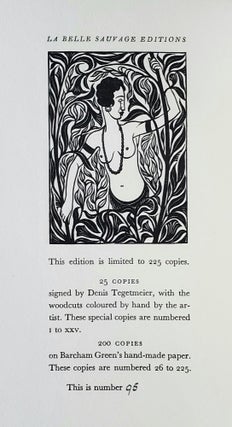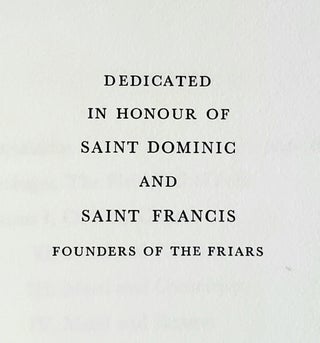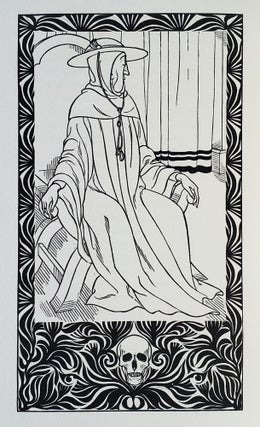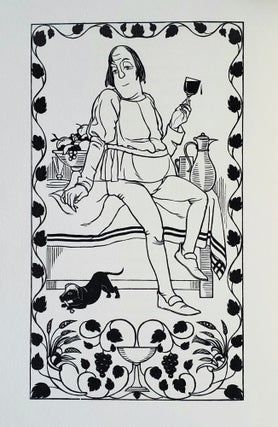The Vision of William concerning Piers the Ploughman; A Version by Donald Attwater with Woodcuts by Denis Tegetmeier
London: Cassell and Company Ltd, 1930. Folio (11 1/2 inches tall), original blue paper boards, gilt black cloth spine, top edge gilt, uncut. Small red ink-stamp to blank flyleaf, gentle toning to paper boards, mild wear to bottom edges, else Fine. Item #1375
"THEREFORE I COUNSEL CHRISTIANS / TO CRY GOD MERCY / AND MARY HIS MOTHER / BE OUR GO-BETWEEN"
Handsome limited edition of William Langland's medieval allegory—an illustrated folio printing of one of the greatest works in the history of English Literature. Translated by Donald Attwater and complemented by Denis Tegetmeier with seven plates illustrating the Seven Deadly Sins.
According to the Catholic historian Christopher Dawson, Piers the Plowman represents "a precious and almost unique record" of medieval Christendom in the minds of the masses (as opposed to that of the courts or of the schools and universities). Langland’s fourteenth century poem "is a voice from the underworld of the common people, speaking their language, using their imagery and sharing their ideals." Attwater's "Version" consists of a lengthy Introduction ("D.A. / Machynlleth, West Wales / 8th September 1930") divided into four sections: The Poem, The Author, The Version, The Theme.
After settling on William Langland as the likely author, Attwater contradicts the idea that the book is an attack on "the iniquities of those in places of power and advantage" such as the Church and the King: "that Langland was what we should now call a convinced Catholic sticks out all over his poem, and his politics were anything but 'radical.'" One of 200 copies, printed on hand-made paper at the Curwen Press, and numbered in ink on the limitation page. One of the publisher's series, La Belle Sauvage Editions. With a Latin epigraph from the Book of Genesis—Ecce Somniator Venit ("Behold, this Dreamer Cometh")—printed on the title page and "Dedicated in Honour of Saint Dominic and Saint Francis / Founders of the Friars." With end Notes after the text. Christopher Dawson. Religion and the Rise of Western Culture.
Price: $300.00

